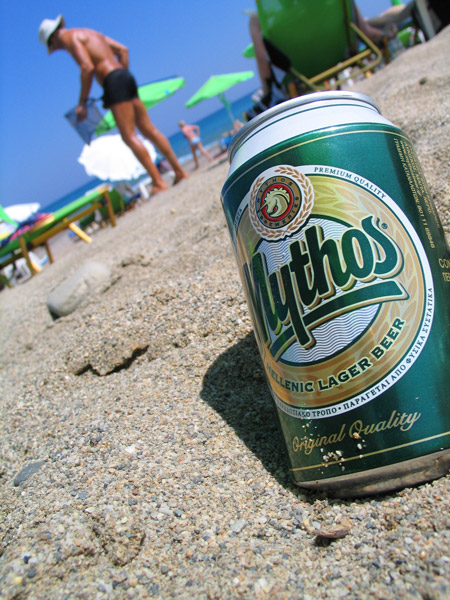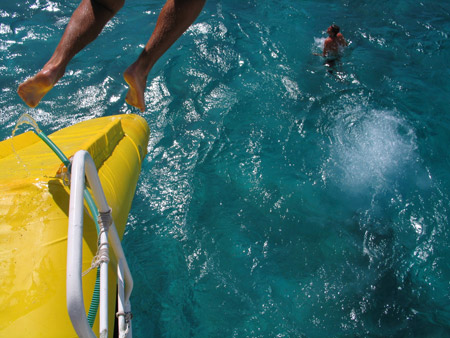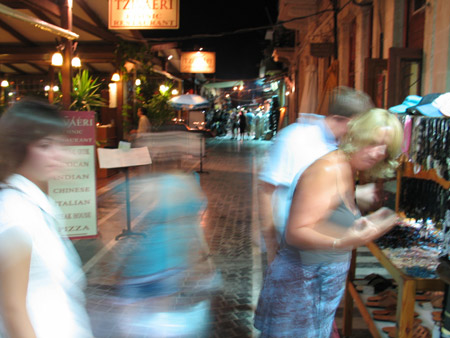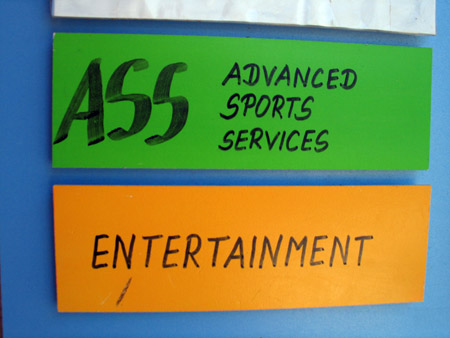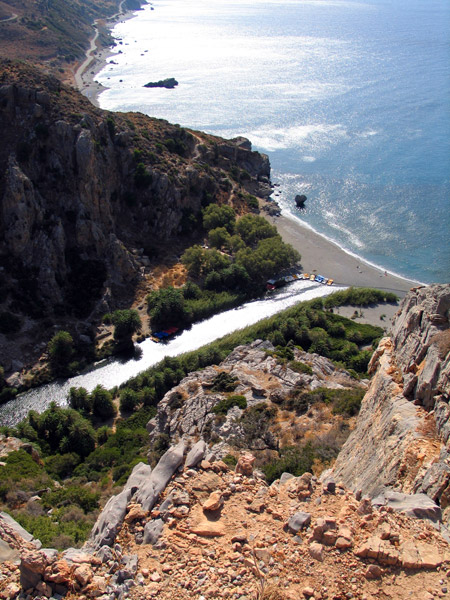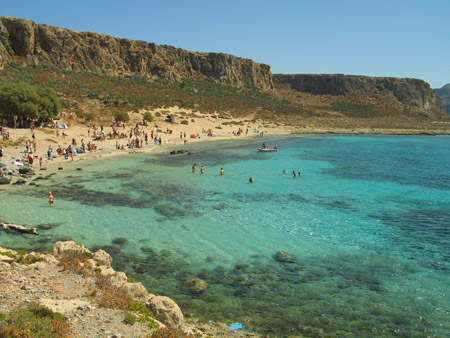Two of my former professors at the journalism school in Bucharest, George and Bradut, have been chronicling the admission exam that is taking place this week at FJSC (1, 2). Over the years I’ve given much thought to this exam and whether it could be made more relevant. At the end of the day, the point should be finding young men and women who have an interest in becoming journalists (duh!).
One of the significant differences between applying to a J-School in Romania and one in the US (the only other system I’m familiar with) is that American high school graduates have a much better idea of how the media operates and what journalists do to get a story. Some have worked on their school paper, some have taken classes on the role of the media and some have read from the abundancy of press criticism. In Romania, the general population doesn’t know that much about the inner workings of the media and the number of graduates who would say they want to go into journalism to keep their communities informed is probably lower.
You also have to consider that for American high school grads there isn’t a specific entrance exam. Just get into college, pass some introductory course, keep a high GPA and you’re in the J-School. In Romania, there is a specific admission exam to the journalism school which consists of a written exam and an oral exam. When I took the exam in 1999, there was no oral exam. I remain convinced to this day that the stuttering shy kid who would melt if he had to speak in front of a crowd would have failed the oral exam. Although I continue to be puzzled by its relevance, I won’t argue against or for it since I’ve never seen this one up close.
I have seen the written one though. It has a grammar portion and a “creativity and expressivity” portion. As years go by, I am more and more convinced it’s a bad idea in its current form. I remember this moment, just before my exam, when I was chatting with a few other people about the “creativity portion.” We were all nervous and trying very hard to hide it–being creative against the clock with 200 people around you is not easy. At one point, a woman asked us: “Who was your tutor?” I started laughing (nervously). Tutor, what a joke. But she wasn’t laughing. “No, I’m serious. Who was it?” A few others around us confirmed this. They had been tutored by J-School professors and taught to write in the style that will allow them to score the needed points with the people grading the papers.
I panicked. I had never heard of such thing. I didn’t and don’t believe you need tutors to teach you formulaic things to pass a creativity exam. In the end, I did OK, but to this day I wonder whether I really wrote something that was good, or whether I just coincidentally hit the high notes that the professors grading the papers were teaching in their private tutoring sessions.
But there is another problem that I find even more disturbing. Here are two of the creativity subjects from this year:
1. You are getting ready to play an important role in an action movie. For this, you begin taking horseriding lessons. Build a story from this situation.
2. You have reached a village immediately after it had been devastated by storm. Write what you have seen and what you found out from the locals.
Yes, the first step in your formal journalism training is making stuff up.
It took me a few years to understand the irony of this, but today it kills me. Kids are trying to become journalists and their first assignment is to create an event that never took place. I might be excessively married to the real world, but this is no way to identify potential journalists. It might be a great way to breed a Romanian Stephen Glass, but what else? It’s nothing but a subtle invitation to keep “being creative.” If “being creative” got you into the J-School, why wouldn’t it get you high marks in class where you just make up assignments? Why wouldn’t it get you get you good people stories taken from people you’ve never met? This being creative worked for a few of my friends during our time in school there.
When I applied for a master’s degree in the US I had to write essays about my thoughts on journalism and public life, short bios and other stuff like that. Yes, it sounds boring and less creative, but at least it was me. Those essays reflect who I am and how I view the world better than any story I could ever make up about horse riding classes.
Maybe the Romanian system is not build to assign an essay or an argument, but why not use the creativity exam to learn more about the candidate as a person than about him or her as an embellisher. A simple way of stating the goal of a J-school is to train people who will keep the rest of us informed. Wouldn’t we want people who are curious, youngsters who, like me at that point, naively believe that stories of people can change lives–that this thing called journalism could change the world?
Why not assign a personal essay? An argument? The dull but years later so important question: why do you want to do this?
Sure, people can be “creative” and make things up here as well. But there are only so many of us who would fake our own lives if we knew there are no specific high points we need to hit in order to convince the professors doing the grading. If I am me and I tell you I want to do journalism because I believe in its power, will you think it’s too cliche and toss me out in favor of somebody whose horse riding lessson features hand stands? I hope not.
 Margo is like metaphor-crammed closet. You have the big breasts of women, who can command anyone’s attention, but they are actually filled with loneliness and they weep. Yes, the tragedy of the modern Romanian woman who can’t find a man unless she trips herself and drops a tit on his nose (excuse the vulgar language, but life is a vulgar beast). Then you have your central character, a whore.
Margo is like metaphor-crammed closet. You have the big breasts of women, who can command anyone’s attention, but they are actually filled with loneliness and they weep. Yes, the tragedy of the modern Romanian woman who can’t find a man unless she trips herself and drops a tit on his nose (excuse the vulgar language, but life is a vulgar beast). Then you have your central character, a whore.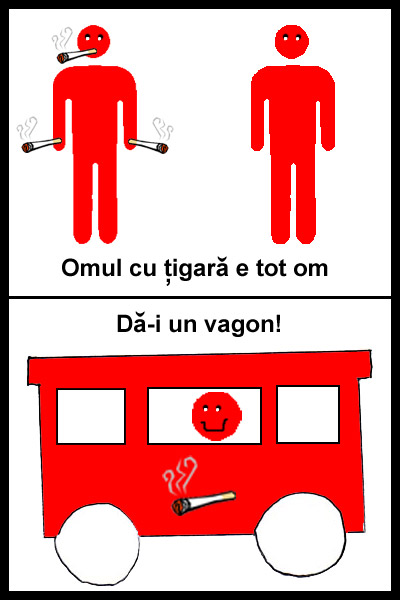
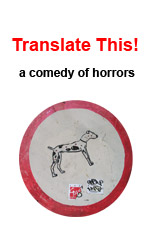 It’s not easy to translate English-language movies into Romanian. Doing subtitles is bad enough as way too often cultural references and certain phrases hit a brick wall when meeting the translator.
It’s not easy to translate English-language movies into Romanian. Doing subtitles is bad enough as way too often cultural references and certain phrases hit a brick wall when meeting the translator.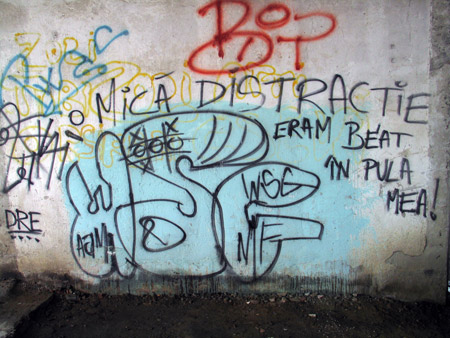


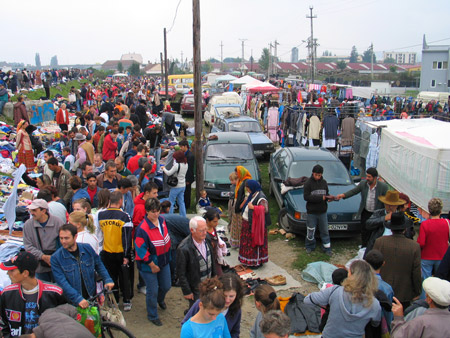
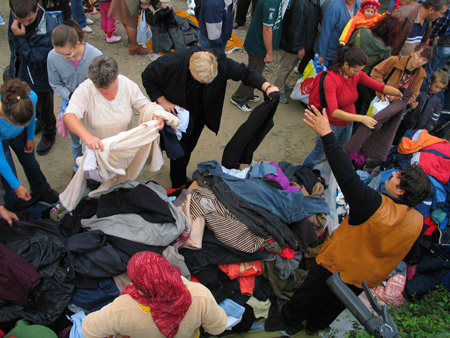
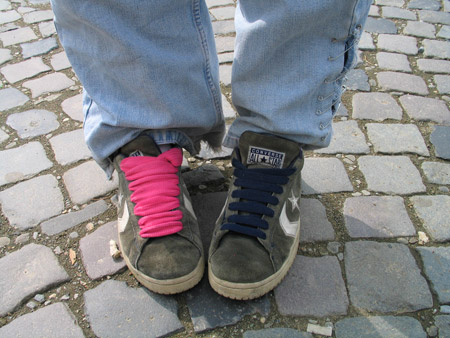
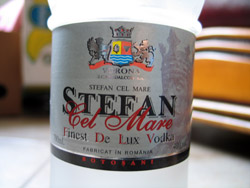 It has been said for centuries that wine is the Holy beverage. I have seen people getting trashed on wine (both on red and the less holy white) and there wasn’t much saintly stuff to report about them. They kept stumbling on their way out of the bar, taxi drivers continued to try to scam them, the night remained as dark as ever and they welcomed the morning with one mother of holy head aches.
It has been said for centuries that wine is the Holy beverage. I have seen people getting trashed on wine (both on red and the less holy white) and there wasn’t much saintly stuff to report about them. They kept stumbling on their way out of the bar, taxi drivers continued to try to scam them, the night remained as dark as ever and they welcomed the morning with one mother of holy head aches.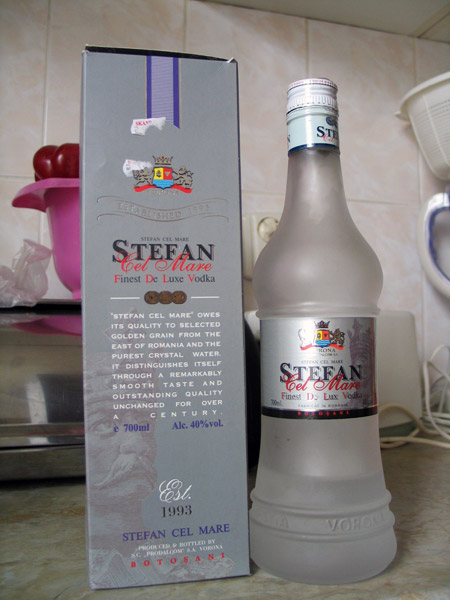
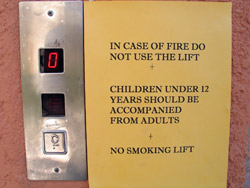 I had coffee with a friend today and we somehow ended up talking about akward social moments. She mentioned being in elevators with strangers and all those seconds that seem to strech forever before the doors open and you can return to your personal space. I realized during our chat that many of the social moments I was aprehensive of have returned since I’ve been back.
I had coffee with a friend today and we somehow ended up talking about akward social moments. She mentioned being in elevators with strangers and all those seconds that seem to strech forever before the doors open and you can return to your personal space. I realized during our chat that many of the social moments I was aprehensive of have returned since I’ve been back.